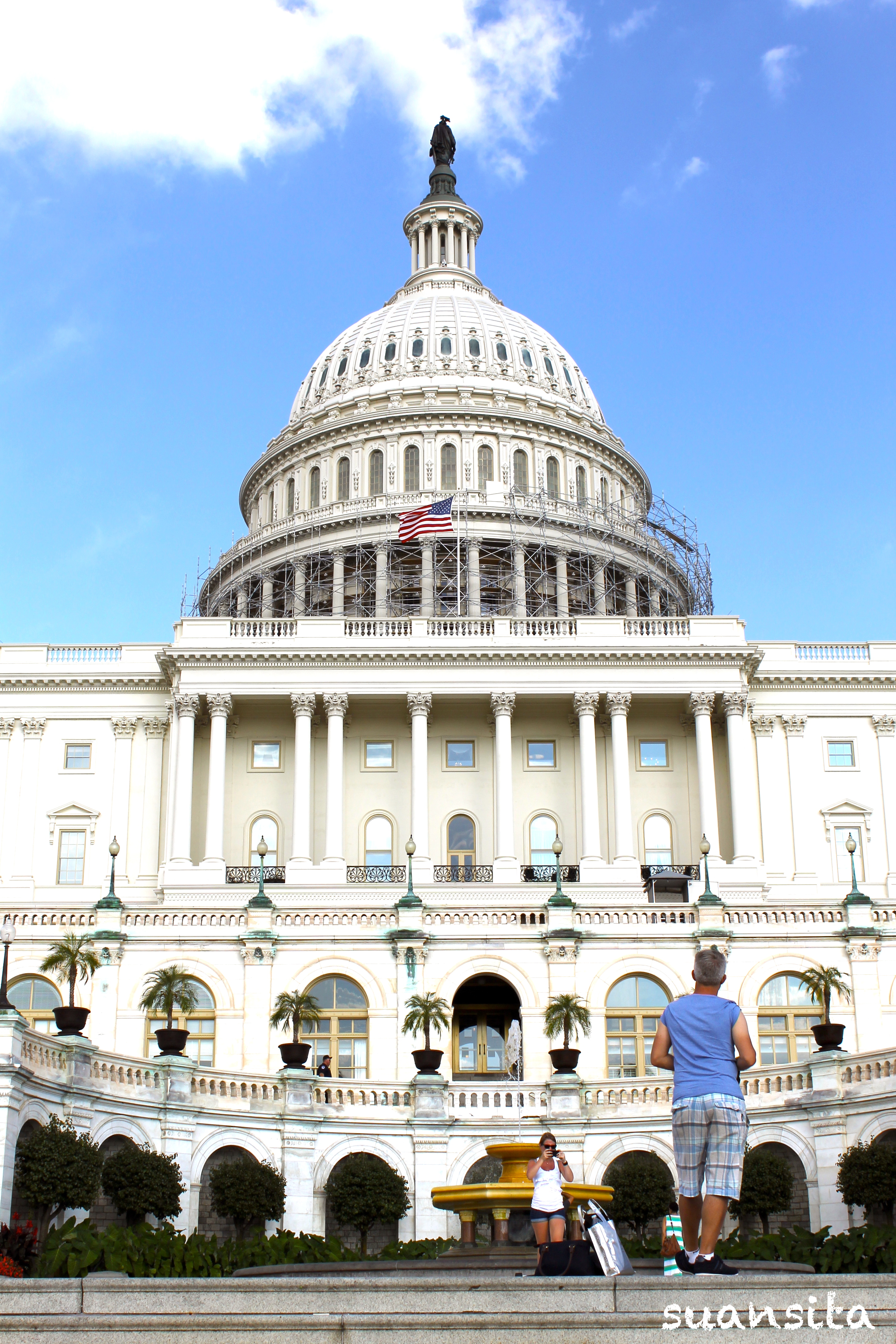The problem with American
Last week, on my flight from New York back to Sydney, I binge watched Season 1 of The Newsroom. It’s a series created by Aaron Sorkin, the guy behind The West Wing, with Jeff Daniels playing Will McAvoy, an anchorman on cable news.
In the opening scene of the series pilot, Will is on a panel with a Democrat and a Republican at a university, when a student asks the panel: “What makes America the greatest country in the world?”
The question triggers an epic and rousing outburst from Will, who dresses down both major political parties and rails about why America is no longer the greatest country on earth.
“But it could be”, he then says in softer tones.
That first season of The Newsroom aired in 2012, before Donald Trump ever campaigned for president, promising to “make America great again”.
Coincidence? I doubt it.
This obsession with greatness is, it seems, deeply etched into the psyche and national identity of the US. Maybe it’s a standard symptom of being an empire – and imperial trappings are something that struck me on my first visit to Washington, D.C..
But hey, what would I know.

As you may have realised, America is not a country. Technically it’s like three continents. Yet in standard usage, when we talk about ‘Americans’, we’re always talking about people from the US – not Canadians, Brazilians, Mexicans, Haitians or Surinamese.
In fact, there is no other word to specifically denominate people from the US – we use the noun as the adjective.
Most of the time, it’s fine.
We can say US dollar instead of American dollar, though they’re used interchangeably.
We can say US citizen instead of American citizen, though they’re used interchangeably.
We can say US flag instead of American flag, though they’re used interchangeably.
We can say US accent – but we don’t. We only ever refer to it as an American accent, or a Californian, Southern or Midwestern one, as the case may be.
And we can say a US woman instead of an American woman: “The US women in town liked to go to that bar”. But we can’t say “The US in town liked to go to that bar” the way we could say “The Canadians in town liked to go to that bar”.
In this regard, the noun as adjective has certain limitations.
So essentially the problem with American is linguistic.

Greatness and great again
But that linguistic detail hints at something deeper. It hints at that obsession with greatness.
For those of us who are not American/from the US (see, there we go again) there is this commonly held idea that ‘Americans’ – as even we call them – believe the world revolves around them. It could just be Australian tall poppy syndrome about US hegemony.
The thing is I suspect that Australia, too, wants to be the greatest. We want to smash it in every sport and show that we’re the best, even if we make up only 23 million people of the global 7 billion and have no weight to throw around at the UN, and certainly zero veto power.
I suppose even Jesus’ disciples argued about being the greatest and getting the best seats in heaven. So there’s definitely an element of human nature that craves glory.

Now, that narrative is about being great – but what about being great again?
When I consider the Trump presidential campaign, Brexit, and conservative politics in Australia, making [insert country here] great again is every nostalgia movement in a nutshell.
It’s funny, really. We have here this human paradox of wanting to be better than ever before and at the same time feeling like things used to be better, back in the (non-existent) good ol’ days.
I wonder if the tension doesn’t ultimately lie in the very idea of greatness. As humans, we have a poor understanding of it. We generally speak of greatness in relative terms, as being the best – ie. being better than all others.
Will, in his Episode 1 rant embedded above, quotes a string of stats about why America – I mean, the US – is no longer the greatest nation in the world. He attempts to use data to assess greatness. Some guys on the internet have fact-checked Will’s numbers, and this article provides some interesting reflections on education, household income, life expectancy, prison rates etc as indicators of greatness.
Several others have said that a society is measured by how well it treats the least of its people. This is an increasingly common view amongst progressives. You could crunch numbers to evaluate success here also – you could look at which country has the lowest income disparity and/or proportion of the population living below the poverty line, you could look at investment in social services.
That’s fine. What I think is important, though, is that this measure of greatness isn’t relative – we should all be aiming for it.
“Lord, when did we see you hungry and feed you, or thirsty and give you something to drink? When did we see you a stranger and invite you in, or needing clothes and clothe you? When did we see you ill or in prison and go to visit you?”
The King will reply, “Truly I tell you, whatever you did for one of the least of these brothers and sisters of mine, you did for me.”
Matthew 25:37-40
At that time the disciples came to Jesus and asked, ‘Who, then, is the greatest in the kingdom of heaven?’
He called a little child to him, and placed the child among them. And he said: ‘Truly I tell you, unless you change and become like little children, you will never enter the kingdom of heaven. Therefore, whoever takes the lowly position of this child is the greatest in the kingdom of heaven. And whoever welcomes one such child in my name welcomes me.
Matthew 18:1-5
Great again is a myth. Greatness, however, should be every country and every individual’s aspiration.
Postnote: Incidentally, Dev Patel whose hair was the protagonist of my previous blog post also stars in The Newsroom – with his usual wide-eyed wonder look and sans noteworthy hair. You might have noticed him in the “I’m going to single-handedly fix the internet!” GIF above.
Header image found at myentertainmentworld.ca.




